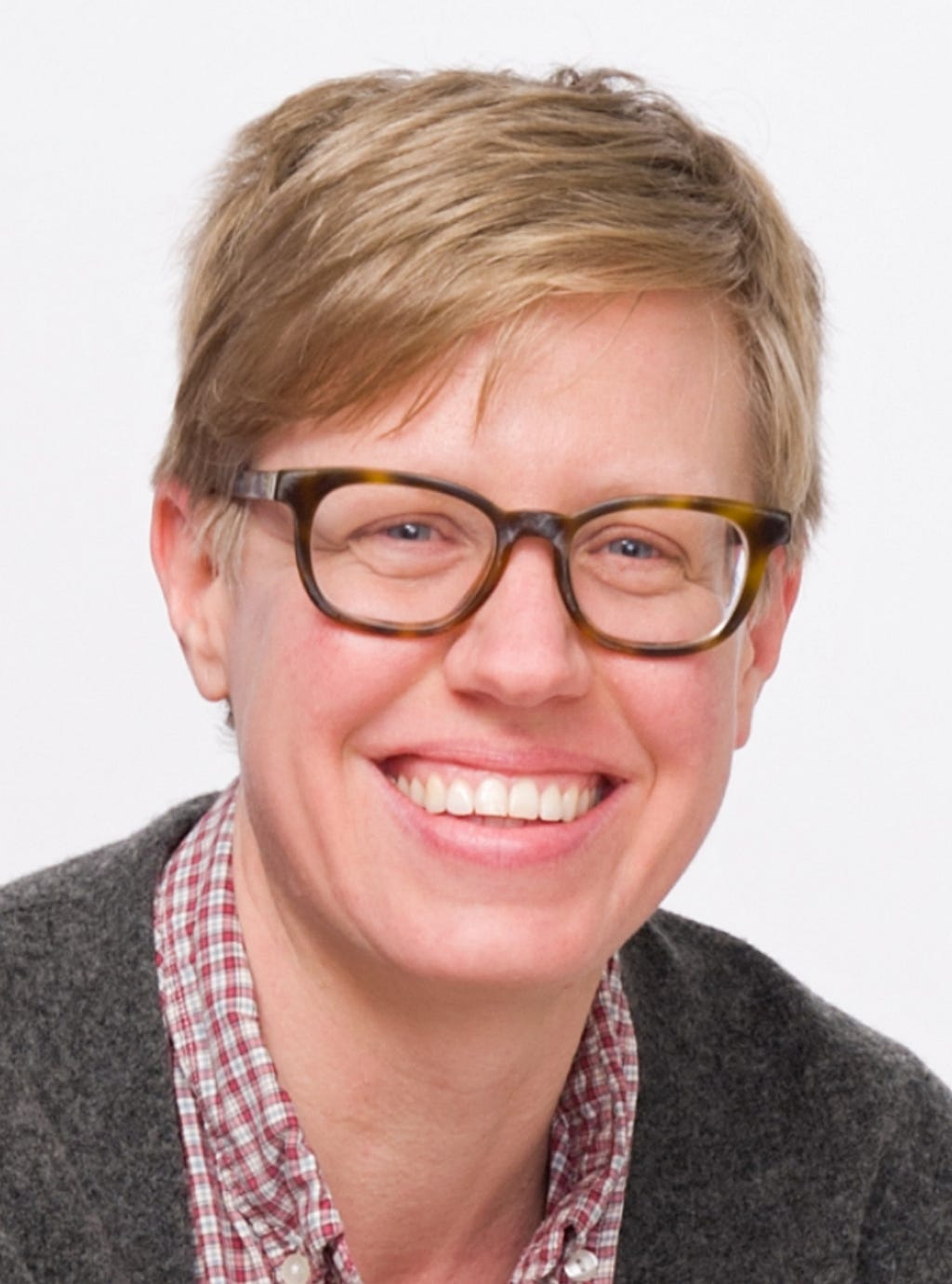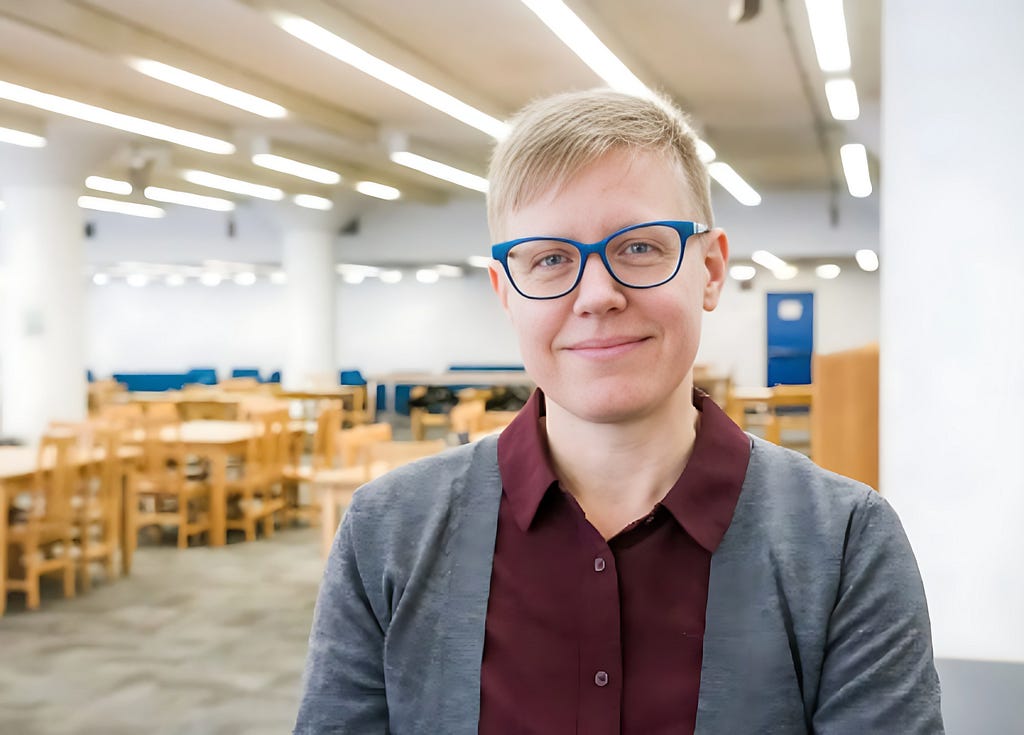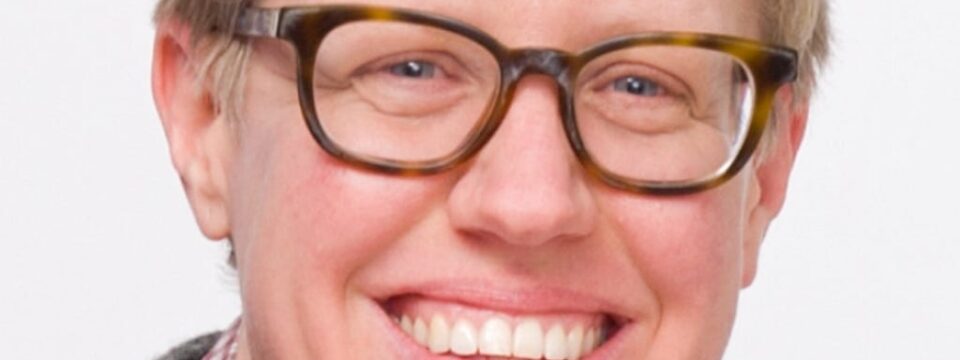Social Impact Heroes: Why & How Emily Drabinski of American Library Association Is Helping To Change Our World

You are not alone! I’ve always been someone who takes on the weight of the world, crediting myself with responsibility for everything from climate change to catching a cold. Leaders can’t do it all and I’ve learned a lot about how to draw on the strengths of the people around me.
As part of my series about “individuals and organizations making an important social impact”, I had the pleasure of interviewing Emily Drabinski.
Emily Drabinski, interim chief librarian at The Graduate Center, City University of New York is the 2023–2024 president of the American Library Association (ALA). Drabinski has served as chair of the International Relations Committee (2020–21), ALA councilor-at-large (2018–20) and chair of the Association of College and Research Libraries (ACRL) Information Literacy Frameworks and Standards Committee (2019–20). She is an active member of ACRL and Core (Core: Leadership, Infrastructure, Futures). She is co-chair of the ACRL President’s Program Planning Committee (2020–21) and serves as reviews editor for College & Research Libraries. She is also a member of several round tables: the International Relations Round Table (IRRT), the Library Support Staff Interests Round Table (LSSIRT), the Social Responsibilities Round Table (SRRT), the Sustainability Round Table (SustainRT), and the Ethnic and Multicultural Information Exchange Round Table (EMIERT). Drabinski is a member of several ALA affiliates: the Black Caucus of ALA (BCALA), REFORMA: The National Association to Promote Library and Information Services to Latinos and the Spanish-speaking, the American Indian Library Association, the Asian Pacific American Librarians Association, and the Chinese American Librarians Association. Drabinski holds an MLIS from Syracuse University, a BA in political science from Columbia University and an MA in composition and rhetoric from Long Island University, Brooklyn. To learn more about Emily Drabinski, please visit her website.
Thank you so much for joining us in this interview series! Can you tell us a story about what brought you to this specific career path?
I moved to New York City from my hometown of Boise, Idaho with big dreams of becoming a writer. After a few years of working toward that goal, I realized I wanted to do work that was bigger than me, that served a larger purpose. A friend suggested I apply for a job at the New York Public Library. I did that and applied to library school that same week. I instantly knew I was in the right place. I am drawn to our shared mission of providing equitable access to information for everyone.
Can you share the most interesting story that happened to you since you began leading your company or organization?
I’ve been a librarian for more than twenty years and a member of the American Library Association for almost as long. What has been most interesting for me is the amount that I didn’t know about what libraries are, who we serve, and the extraordinary impact we can make. Members in our Rainbow Round Table advocate for the rights of LGBTQ+ library staff and readers through shared book lists, social activities and collective action. Our Government Documents Round Table works on the knotty problems of preserving the history of the country’s institutions in a digital environment. Our International Relations Committee fosters global connections that enhance librarianship around the world. Our Core Division advances cutting edge library technologies, and that’s just a tiny sliver of what we do! The scope of American libraries and the association continually blows me away.
It has been said that our mistakes can be our greatest teachers. Can you share a story about the funniest mistake you made when you were first starting? Can you tell us what lesson you learned from that?
On my first day as a librarian at Long Island University, Brooklyn, I could not figure out what I was supposed to be doing. I’d had pretty close supervision in my previous positions and this was my first time working with the freedom you get as a faculty member. Who was in charge of me? I was! At a bit of a loss, I chose to spend that first day patiently printing out the entire library website, organizing dozens of sheets of paper into folders that I would never look at again. It was a silly way to spend a day, but taught me an important lesson: when you’re not sure what to do, take a step back and think first about what you want to accomplish. Forging ahead without a clear vision is a waste of time and resources.
Can you describe how you or your organization is making a significant social impact?
Since its founding nearly 150 years ago, the American Library Association has worked to fulfill its mission to provide leadership for the development, promotion and improvement of library and information services and the profession of librarianship in order to enhance learning and ensure access to information for all. We know that libraries are institutions of freedom and of human flourishing. Everyone who has been helped by a librarian — and that’s most of us, whether we know it or not — has benefited from the work of ALA.
Can you tell us a story about a particular individual who was impacted or helped by your cause?
I think a lot about my mom with this question. She’s like a lot of older Americans, a big reader who spends a lot of time at home. Every Wednesday, she takes a trip to the Boise Public Library and checks out print and audio books for the week, a dozen at a time, returning last week’s haul. Every time I talk to her she tells me about what she picked up from the library this week. Those weekly trips provide some of her most meaningful social connections. There are so many people like her, millions of lives impacted by the work of America’s libraries and the American Library Association.
Are there three things the community/society/politicians can do to help you address the root of the problem you are trying to solve?
In this moment of intense public attention on the role of libraries, we need everyone to recognize the contributions that libraries make to communities. First, if you don’t have a library card, go get one. The best way to support libraries is to use them! Second, make sure you’re aware of organized censorship attempts in your community. Pay attention to school and library board meetings and show up to voice your support. Third, advocate for full public funding for public institutions. We know that the political winds buffeting us now will change. What won’t change is the need to better resource these vital community institutions.
How do you define “Leadership”? Can you explain what you mean or give an example?
Leaders are people who other people follow. You don’t have to have a particular job title or sit in a corner office to be a leader. I am always on the lookout for those who have influence in their own communities, people who bring other people along. I think a lot about Anne Marie, a staffer at Long Island University, Brooklyn, one of the libraries where I worked. Every holiday season she would pull a group together to organize a party, ensuring that everyone on our diverse staff brought food to share from their home cultures: Jamaican beef patties, Indian samosas, rugelach and fruit cake. She may not have had the title, but she was a leader who organized the rest of us to celebrate ourselves and each other.

What are your “5 things I wish someone told me when I first started” and why.
1 . You are not alone! I’ve always been someone who takes on the weight of the world, crediting myself with responsibility for everything from climate change to catching a cold. Leaders can’t do it all and I’ve learned a lot about how to draw on the strengths of the people around me.
2 . It’s not an emergency! Making decisions out of a sense of panic and crisis usually means making the wrong call. When I was first elected, every decision felt urgent. That had me pulled in a million directions and burning out quickly. I’ve learned to take my time.
3 . Which is not to say things aren’t urgent! Prioritization matters, and important decisions need to be made quickly. When I first learned of pressures in Wyoming to limit support for the ALA, I reached out immediately to chapter president for a conversation. I wanted him to know that he had my full and unwavering support, even in the face of the politicization of his work.
4 . One on one conversations are the lifeblood of institutions. When I began my term as ALA president, I relied on one-way communication through listservs and email but found myself losing touch with the human side of our work. Since then I’ve prioritized smaller conversations that enable me to listen more than I talk.
5 . Take notes as you go. I always think I’ll remember where I was, who I met, and what we discussed. Turns out I can’t keep it all in my head! Keeping track of conversations is crucial, especially when we need to draw on the power of the collective voice in challenging moments.
You are a person of enormous influence. If you could inspire a movement that would bring the most amount of good to the most amount of people, what would that be? You never know what your idea can trigger. 🙂
We are stronger together, and that’s not just a slogan. It is possible to build the power of the collective. We do that by talking with each other about things that matter and documenting the growth of our movements. My big secret for making change happen? Put every conversation in a spreadsheet! We need to know that we are not alone in the fight. I happen to think that a broad movement for protecting and expanding libraries is our best bet for building the world we want. If everyone had access to a well-resourced library staffed by a qualified professional librarian, we would all be better off.
Can you please give us your favorite “Life Lesson Quote”? Can you share how that was relevant to you in your life?
My dad used to corral my twin sister and I together for what he called “Wisdom Moments.” As teenagers, you can imagine how we felt about that! Looking back, he was right about most things, especially one of the maxims I live by: no surprises. I strive to ensure that everyone is in the know the minute it’s possible to share information.
Is there a person in the world, or in the US with whom you would like to have a private breakfast or lunch with, and why? He or she might just see this, especially if we tag them 🙂
I’m a big reader — lots of us librarians are — so of course it has to be an author! Imbolo Mbue’s How Beautiful We Were is the best book I read this year, the kind of story that reminds us of the truths only fiction can tell. Her rendering of how difficult and important it is to struggle against oppression continues to inspire me to stand up for what’s right, even when it’s scary and even when it’s hard.
How can our readers further follow your work online?
The best way to follow what’s happening in American libraries is to use them! The very first thing everyone reading this should do is ensure they have a library card. And then join us in our fight for the right to read by joining our Unite Against Book Bans campaign at http://www.uniteagainstbookbans.org. We’ll keep you up to date on the status of organized censorship attempts in your area.
This was very meaningful, thank you so much. We wish you only continued success in your great work!
Social Impact Heroes: Why & How Emily Drabinski of American Library Association Is Helping To… was originally published in Authority Magazine on Medium, where people are continuing the conversation by highlighting and responding to this story.
